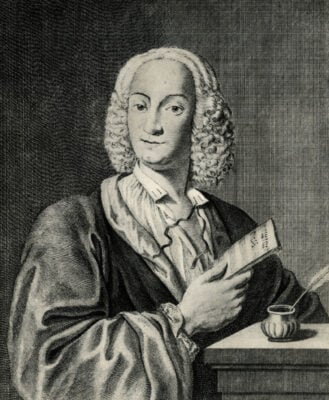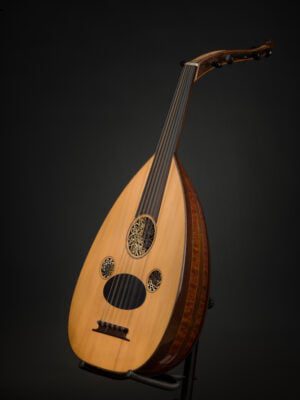When it comes to art, there is little less understood than that which is well-ingrained in popular imagination. The prevalence of a piece in the mind of a passerby may lead to awareness, and awareness to comfort, but neither necessitates true knowledge. At the Indianapolis Symphony Orchestra’s recent performance of Antonio Vivaldi’s “Four Seasons,” this fact was shown brilliantly in a night that reinvigorated melodies most people have heard their entire lives.
A collection of four violin concertos, the International Movie Database (IMDB) notes that this eighteenth-century masterpiece has been used in hundreds of films. Now, on its 300-year anniversary, these well-known tunes were displayed wonderfully in a historically informed performance by Grammy-winning conductor Jeannette Sorrell and internationally acclaimed violinist Francisco Fullana.

Sorrell is a prominent figure in the ongoing revival of what is known as “early music.” Although definitions vary, early music typically focuses on playing pieces composed from the Medieval period to the Baroque, with an emphasis on the use of period instruments and techniques.
She notes that composers did not intend for their music to be played on instruments like those used today, or in orchestras of such large size.
“That is not what they were expecting for their music, and it is not necessarily the best way of serving their music, so I really applaud the Indianapolis Symphony for their decision to embrace a historical approach,” Sorrell remarked in our pre-performance interview.
Having presented the concertos across the world, Sorrell describes Vivaldi’s “Four Seasons” as “rustic and playful,” perhaps a surprise to viewers who have so often seen them used as signposts for sophistication. Even still, the at-times lighthearted nature of the concertos and their depictions by no means made them any less demanding to play.
Conducting from the harpsichord, as was common in the Baroque period, Sorrell first sought to entrance the audience with works by Vivaldi’s contemporaries, playing Marco Uccellini’s “La Bergamasca” and a suite from Marin Marais’ opera “Alcyone.”
In line with her knowledge of the past, Sorrell’s arrangement of the first of these works had a heavy emphasis on the score’s presence of the lute, an ancestor of the guitar. It could be heard, bright but fierce, in accompaniment to the orchestra, which saw its wooded body slapped as much as its strings were strummed.

Similarly distinctive sounds were then seen in the songs selected from “Alcyone,” an opera heavily concerned with the seas. While performing these works, Sorrell seamlessly alternated between conducting, playing the harpsichord and playing the tambourine in an explosion of energetic expression meant to recall the crashing of waves and rambunctiousness of sailors.
When she dramatically slammed the tambourine above her head with a smile in a powerful final note, laughter was as abundant as applause. She would receive much more as the night went on.
Between her intricate orchestration of Vivaldi’s “Four Seasons,” Sorrell explained how the work was inspired by sonnets, which at times could be quite amusing. Violas were roughly plucked to sound like barking dogs, cellos and contrabasses imitated the drone of bagpipes and musettes.
“It is really imaginative writing,” Sorrell stated. “We all want to honor the composer’s intentions.”
This sentiment was illustrated impeccably in the final season, the “Winter” concerto. Once again, the lute was not neglected and, where most would relinquish the first movement’s sparkling sound of the harpsichord to a mere ornamental and repetitive chime, Sorrell’s emphasis on flowing, broken chords made it an integral part of the anxious introduction.
Fullana was the star of the second movement, which recalls the warmth of being in front of a fireplace while cold rain falls outside. Rightfully regarded as a brilliant soloist, his playing of the violin demonstrated a profound knowledge of the melody and its structure and a keen understanding of how to connect with the heart of an audience. The resultant sound was not simply soulful or sentimental, but instead, with an emotional accuracy, conveyed the specifics of the experience so strongly that one could almost feel the soft caress of the flames.
The final movement, whose swaying sounds recall the slippery nature of a ground glazed in ice, was performed with reverence. At times rather hypnotic, it ended in a flurry, then lived in a wisp as the sound gradually faded. A standing ovation was immediate.
An encore followed in the form of a special performance of Vivaldi’s “La Follia,” which simply means “Madness.” It was exuberant and indulgent, with Sorrell describing her arrangement as “a group jam session.”
A friend once said that Vivaldi would’ve love Jimi Hendrix; now it’s quite clear why.
Fullana certainly looked like a rockstar while he bobbed and tossed his head as the music sped up. On his period violin, whose gut strings were made from the intestinal linings of animals, he played beautifully deranged. The lutist was slapping the body of his instrument again, and people were stomping their feet. A friend once said that Vivaldi would’ve loved Jimi Hendrix; now it’s quite clear why.
Ultimately, far from being concerned with only technicality, Sorrell made clear that early music operates as a modality through which one can become better emotionally acquainted with a work. In her enlivened engagement with Vivaldi’s “Four Seasons,” her exaltation of its beauty, and her acclimation of modern audiences to it, she has shown just how relevant it really is.
Caiden Cawthon is a legally blind writer who seeks to shine a light on that not readily seen, and can be found on Instagram at @caidencawthon.








